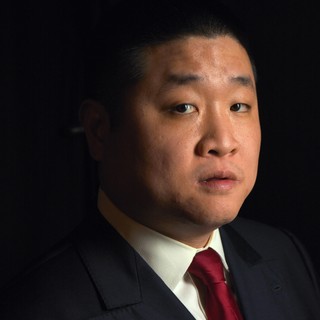Germany’s center-right Christian Democratic Union (CDU) won the top spot in the nation's federal election, with right-wing Alternative for Germany (AfD) coming in second place with its best showing in history.
The CDU/CSU bloc surged, earning 28.7% of the vote on Feb. 23 due to massive discontent over inflation, surging energy costs, and failed migrant policies, followed by the AfD with 19.8%, according to state public broadcaster ZDF.
Germany is currently facing an economic and demographic crisis, while relations with the new Trump administration are strained.
“Tonight we will celebrate, and from tomorrow we start working ... The world out there is not waiting for us,” said CDU/CSU Friedrich Merz, to his supporters.
"We have achieved a historic result," AfD leader Alice Weidel, told party supporters at an election night gathering in Berlin, stating that the AfD was at last "firmly anchored" in Germany's political landscape, reported the BBC. However, Merz has ruled out any chance of forming a government with the AfD, despite his rival party's near capture of 20% of the vote.
Meanwhile, the center-left Social Democrats are expected to oust their current leader, Chancellor Olaf Scholz, for having led his party to defeat in its worst election results since the end of the Second World War.
The SPD's co-leader Lars Klingbeil is expected to be the party's next leader after taking over the leadership of the SPD parliamentary group in the Bundestag, Germany’s parliament, SPD Chairman Rolf Mützenich told party leaders on Sunday.
Scholz, who will continue to serve as the caretaker chancellor, described the election results as "bitter" and acknowledged his party’s defeat after exit polls indicated the SPD plunging to 16%-16.5% of the vote.
The left-wing Greens won 12.3%, won the far-left Die Linke party won 8.9% of the vote, while the Free Democrats (FDP) and the new Sahra Wagenknecht Alliance party, hovered around the 5% threshold to qualify for parliament.
Scholz admitted, "We have to acknowledge we have lost the election... This result is worse, and I am responsible for that too."
The German Chancellor also congratulated Merz, while expressing his concerns over the AfD’s strong showing, which has shaken up Germany's post-Cold War establishment.
The AfD saw an impressive increase of more than nine percentage points from the 2021 election after popularly campaigning for strict border controls, a reduction in asylum-seekers, ending support for the war in Ukraine, and eliminating "net zero" climate requirements.
"Now we have the far-right — the AfD — and the fact they got such a good election result is something we cannot accept and I will never accept," said Scholz.
"We need to stick to what we have always said, we mustn't work with the far-right," he said, adding, "I am convinced that... our values are important so that our country remains significant."
Despite emerging as the largest bloc, the CDU/CSU scored its second-worst post-war results, leaving it with a weak hand in negotiations.
Merz’s center-right bloc is expected to lead talks with the SPD as a potential partner in a coalition, at the expense of the AfD, which he intends to exclude from power.
Unfortunately for Merz, a "Black/Red" coalition would only have a combined 46% of the vote, which is too short to form a majority, thus forcing him to form a government with either the FDP or the Greens and putting him into a similar unfavorable situation as Scholz. Scholz's alliance with the Greens and FDP was widely blamed for the downfall of his dysfunctional "Traffic Light Coalition," which was deemed incapable of governing.
Europe’s largest economy has faced two years of contraction since the loss of vital Russian natural gas, forcing vital industrial plants to shut down and multiple high-profile terror attacks, led by an influx of more than 3.5 million third-world migrants between 2014 and 2024, have only added to domestic troubles.
Related: German Government Collapses After Chancellor Loses No Confidence Vote
Weidel stated that the AfD was “open to coalition negotiations" with the CDU/CSU but warned that “no policy change is possible in Germany” if her party's offer to form a government was rejected.
"We have fundamentally different views, for example on foreign policy, on security policy, in many other areas, regarding Europe, the euro, NATO," responded Merz, adding that “you want the opposite of what we want, so there will be no cooperation."
There is speculation that Merz will attempt to emulate the AfD’s popular hawkish stance on immigration, but he has a record of wavering on key issues like nuclear energy. His predecessor, former CDU leader and German chancellor, Angela Merkel, led Germany's push to deactivate its domestic nuclear power plants a decade ago.
Merz said he is still hopeful that he can put together a coalition government by Easter, but many analysts are less optimistic.










Join the conversation as a VIP Member